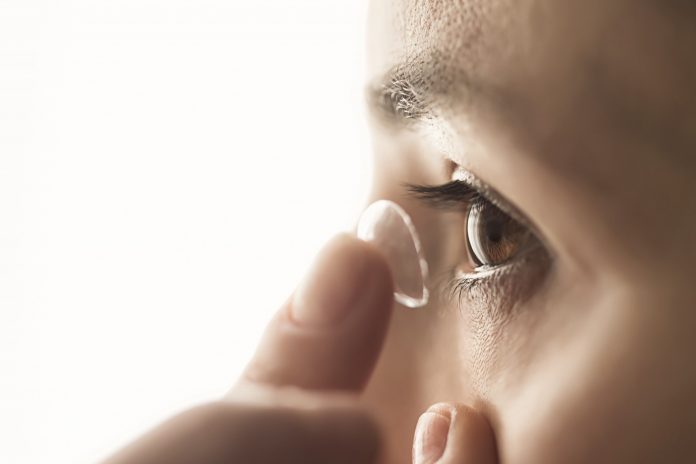Those who wear reusable contact lenses could be at risk of developing a rare eye-threatening eye infection, a new study has found.
The case-control study by researchers at UNSW Sydney, University College London (UCL) and Moorfields Eye Hospital was published in Ophthalmology and reveals multiple risk factors that increase the risk of the rare sight-threatening infection, Acanthamoeba keratitis (AK).
These risk factors include wearing reusable contact lenses and wearing them overnight or in the shower.
“Previous studies have linked AK to wearing contact lenses in hot tubs, swimming pools or lakes, and here we have added showers to that list, underlining that exposure to any water when wearing lenses should be avoided,” first author Scientia Associate Professor Nicole Carnt at UNSW Medicine & Health, UCL Institute of Ophthalmology and Moorfields Eye Hospital said.
“Public pools and coastal authorities could help reduce this risk by advising against swimming in contact lenses.”
Associate Professor Carnt says that contact lenses can act as a vessel to transport and retain microbes close to the eye. This can lead to a greater opportunity for infection to occur compared to not wearing contact lenses.
About AK
Contact lens use is said to be the leading cause of microbial keratitis – corneal infection – in patients with otherwise healthy eyes.
Sight loss resulting from microbial keratitis is uncommon but Acanthamoeba, although a rare cause, is one of the most severe and is responsible for about half of those contact lens users who develop sight loss after keratitis.
90% of AK cases are associated with avoidable risks.
AK causes the front surface of the eye, the cornea, to become painful and inflamed, due to infection by Acanthamoeba, a cyst-forming microorganism.
The most severely affected patients – a quarter of the total – end up with less than 25% vision or become blind following the disease and face prolonged treatment.
Overall, 25% of people affected require corneal transplants to treat the disease or restore vision.




